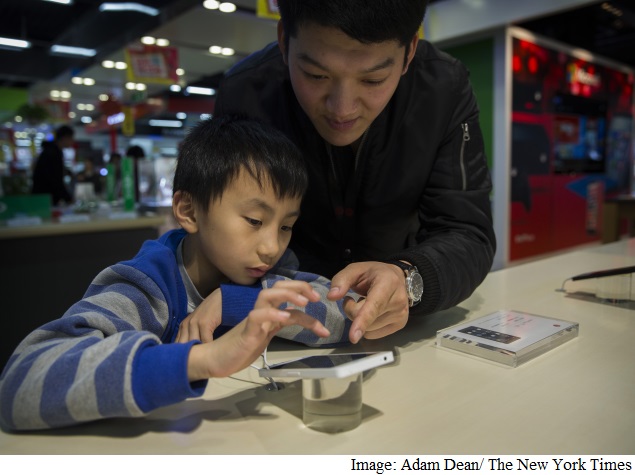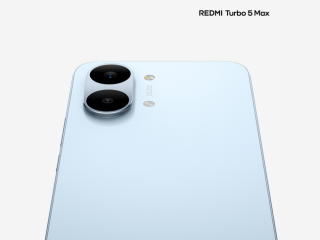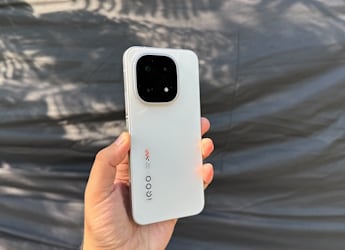- Home
- Mobiles
- Mobiles Features
- Chinese Phone Upstarts Sell With Personality, Not Product
Chinese Phone Upstarts Sell With Personality, Not Product

But while Apple's Timothy D. Cook would most likely gush over the aesthetics of the new iPhone and Xiaomi's founder, Lei Jun, would earnestly enumerate the number of cores in his latest phone's processor, the man on stage, Luo Yonghao of the Chinese startup Smartisan, warmed up the crowd with a comedy routine.
Looking up at a slide displaying the specs of his company's first phone, he read, "Qualcomm Snapdragon 801 quadcore processor," and then said:
"As for the next few lines, frankly speaking, even though I'm the head of a cellphone company I don't understand them."
A laugh rolled through the room.
Luo, a former English teacher and well-known Chinese Internet personality, is an expert at getting attention. The product release last May was one of a series of presentations he has given over the last two years, part of a plan to build a name for his new company.
It has been working. A video of the event has more than 7 million views on the Chinese video site Youku. Sales of the first batch of the company's phones were constrained by supply chain hitches, but the company still sold nearly a quarter-million smartphones, said Li Jianye, a vice president with the company.
Luo's success points to a shift in the Chinese consumer market. These days, younger Chinese consumers are looking for cool in smartphones. Rising to meet the demand are a new generation of Chinese startups like Luo's that recognize they are selling an identity as much as a phone.
Emboldened by the staggering growth of the 5-year-old phone-maker Xiaomi, which in December closed a round of financing to make it worth $45 billion (roughly Rs. 2,80,380 crores), these companies are taking innovation and style risks with low-cost phones to shake up the established order.
Though no smaller companies can yet compare to Xiaomi, the rewards for following in its footsteps can be big. On Monday, the Chinese e-commerce giant Alibaba announced a $590 million (roughly Rs. 3,603 crores) investment for a minority stake in Meizu. Once a maker of MP3 players, Meizu's middle-range phones are popular with a demographic slightly older and more affluent than the millions loyal to Xiaomi. With the deal, Alibaba will be able to push its mobile operating system on more handsets.
To compete with already established giants like Huawei and Lenovo, companies like Smartisan and Meizu use social media, the fame of their founders and just about any other Internet trick they can think of to build a name for themselves.
"The big shift is the way they're engaging their customers; all that social media interaction behind the scenes is what's building a fierce fan loyalty," said Bryan Ma, an IDC analyst.
For Luo, who has 10.6 million followers on the Chinese social media site Weibo, every post is an advertisement, Li of Smartisan said in an interview. Emulating Xiaomi, Smartisan also takes comments from fans on official company forums and encourages them to discuss the company's products.
These types of interactions are slowly creating a more personalized market.
"In the old days, everyone wanted branded products and luxury goods," said Ruby Lu, a partner at the venture capital firm DCM.
"But people born later, in the '80s and especially in the '90s, have a new desire," she said. "They want a product that defines them, that speaks to them. They want to reject the mainstream definition of who they are."
That in part is driving specialization, with different startups playing to different demographics and tastes.
One company, MFox, bills its smartphones as nearly indestructible and targets outdoor types. Yuandian, another small smartphone company, aims its products and marketing at people ages 23-25, even taking into account which features stand out when phone users are at nightclubs.
Smartisan, which features a hammer in its logo, does a lot to try to separate itself from the pack. The company hired Ammunition, a firm founded by Robert Brunner, former Apple director of industrial design, to design its phone. The phone's software has a number of features that set it apart, including tilelike icons, a function that allows users to hide apps and a way to sort contacts by a variety of categories.
Analysts say Smartisan's software and hardware design at times outshines those of larger companies, but they also argue that Luo's celebrity is equally important to the company's success. Li of Smartisan said customers in part get behind the company because they look up to Luo as a sort of freethinker in China.
"He tells students how cruel Chinese society can be because of the unfairness everywhere," Li said. "He says you will face this when you grow up, but you want to keep your integrity and warm heart."
It is a lesson Luo learned well growing up in a small, impoverished town bordering North Korea and closer to Vladivostok, Russia, than Beijing.
"I was born in the 1970s in a small Chinese town on the border," Luo wrote in an email interview. "During a time of malnutrition, I ate enough to become fat. In an environment lacking stimulation, I quit school and read my way to being an intellectual."
In his 20s, Luo moved between low-paying jobs, at one point selling kebabs. At 30 he had a sort of midlife crisis.
"I realized I couldn't keep acting like a kid," he wrote. "I needed to find a way to enter the middle class."
That was when he decided to join New Oriental as an English teacher. New Oriental, a well-known private education company, runs classes complementing China's schools.
He gained some fame in the early 2000s, when several students recorded his classes and put them online. Around the same time he also became a figure in China's early blogging scene, syndicating a number of outspoken - and eventually famous - bloggers on a website that the government shut down because of the politically sensitive nature of the posts.
Eventually he struck out on his own, starting up a tutoring service that was similar to New Oriental.
A gadget enthusiast, Luo said he long wanted to start his own tech company. He was able to realize that ambition because, like other young Chinese entrepreneurs, he found it relatively easy to attract venture capital investment in China, and to find cheap and capable contract manufacturers there as well.
For his boldness, and early success, he has no shortage of fans who admire the self-made-man narrative he has carefully promoted. He also has no shortage of critics.
"A lot of people like him but a lot of people hate him," Li said. "If you look online so many people insult him because he is very outspoken."
Some say he is merely mimicking Xiaomi's business model, offering little that is different. Those critics have a point: Smartisan's business model does borrow from Xiaomi. Nonetheless, analysts say the company, and other young Chinese smartphone startups, are onto something new, and causing real change in the domestic market.
Their rise has made the previous generation of electronics giants adapt to compete. Huawei, ZTE and Lenovo have started new phone brands sold and marketed primarily online. DCM's Lu also points out that a popular new Huawei phone, the Mate 7, shows the company has stepped up attention to phone design.
If Smartisan deserves plaudits for hipness in China, it has yet to take the ultimate test and feel out foreign markets. Other young Chinese smartphone startups are already having modest success in those arenas.
Xiaomi is selling in a number of developing markets. OnePlus, a Chinese smartphone startup that began in August 2013, has exceeded the expectations of its founders by using non-Chinese social media, like Twitter and Reddit, to sell its phones across the globe.
It lends credence to Luo's prediction on what's next for the industry.
"I believe, at least in the low-cost segment, Chinese smartphone companies will dominate the world," he wrote.
© 2015 New York Times News Service
Catch the latest from the Consumer Electronics Show on Gadgets 360, at our CES 2026 hub.
- Samsung Galaxy Unpacked 2025
- ChatGPT
- Redmi Note 14 Pro+
- iPhone 16
- Apple Vision Pro
- Oneplus 12
- OnePlus Nord CE 3 Lite 5G
- iPhone 13
- Xiaomi 14 Pro
- Oppo Find N3
- Tecno Spark Go (2023)
- Realme V30
- Best Phones Under 25000
- Samsung Galaxy S24 Series
- Cryptocurrency
- iQoo 12
- Samsung Galaxy S24 Ultra
- Giottus
- Samsung Galaxy Z Flip 5
- Apple 'Scary Fast'
- Housefull 5
- GoPro Hero 12 Black Review
- Invincible Season 2
- JioGlass
- HD Ready TV
- Laptop Under 50000
- Smartwatch Under 10000
- Latest Mobile Phones
- Compare Phones
- Tecno Spark Go 3
- iQOO Z11 Turbo
- OPPO A6c
- Samsung Galaxy A07 5G
- Vivo Y500i
- OnePlus Turbo 6V
- OnePlus Turbo 6
- Itel Zeno 20 Max
- Lenovo Yoga Slim 7x (2025)
- Lenovo Yoga Slim 7a
- Lenovo Idea Tab Plus
- Realme Pad 3
- Garmin Quatix 8 Pro
- NoiseFit Pro 6R
- Haier H5E Series
- Acerpure Nitro Z Series 100-inch QLED TV
- Asus ROG Ally
- Nintendo Switch Lite
- Haier 1.6 Ton 5 Star Inverter Split AC (HSU19G-MZAID5BN-INV)
- Haier 1.6 Ton 5 Star Inverter Split AC (HSU19G-MZAIM5BN-INV)


![[Sponsored] Haier C90 OLED TV | Dolby Vision IQ, 144Hz OLED and Google TV in Action](https://www.gadgets360.com/static/mobile/images/spacer.png)









